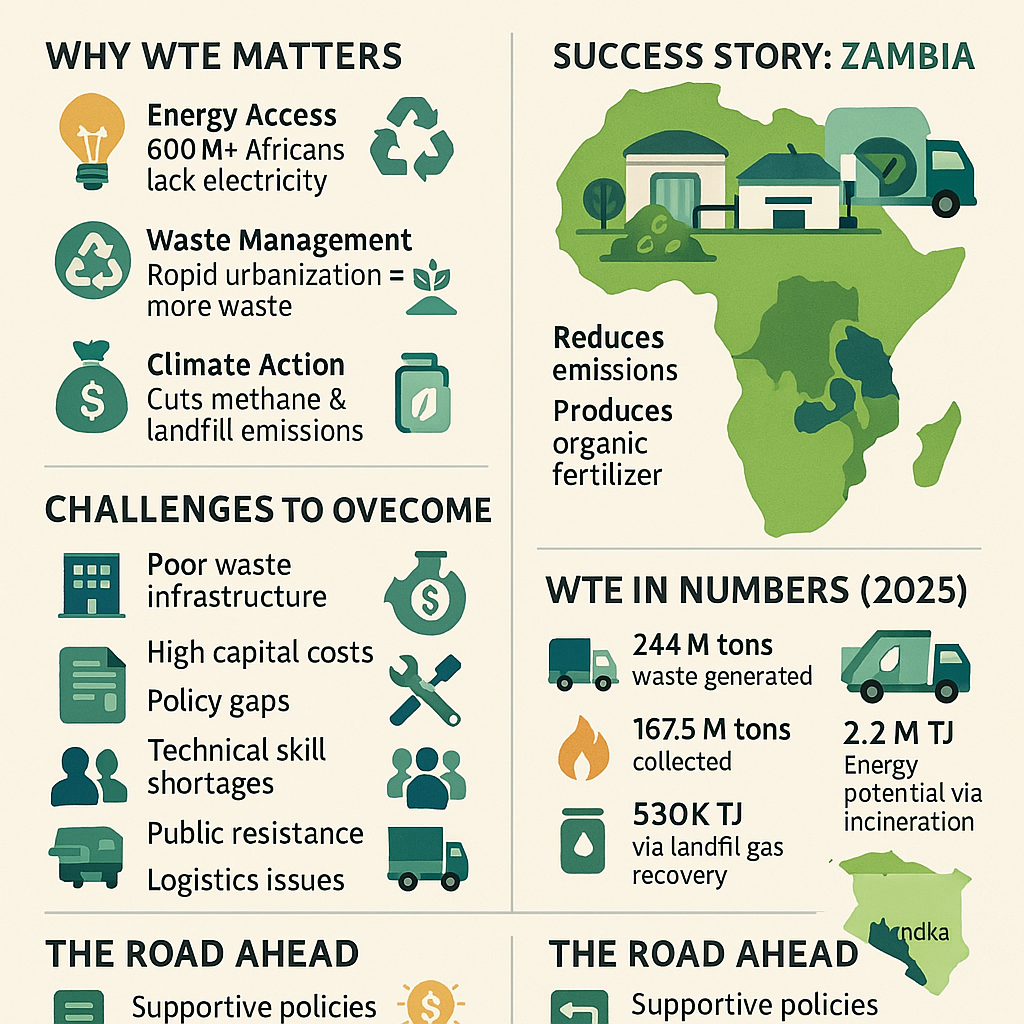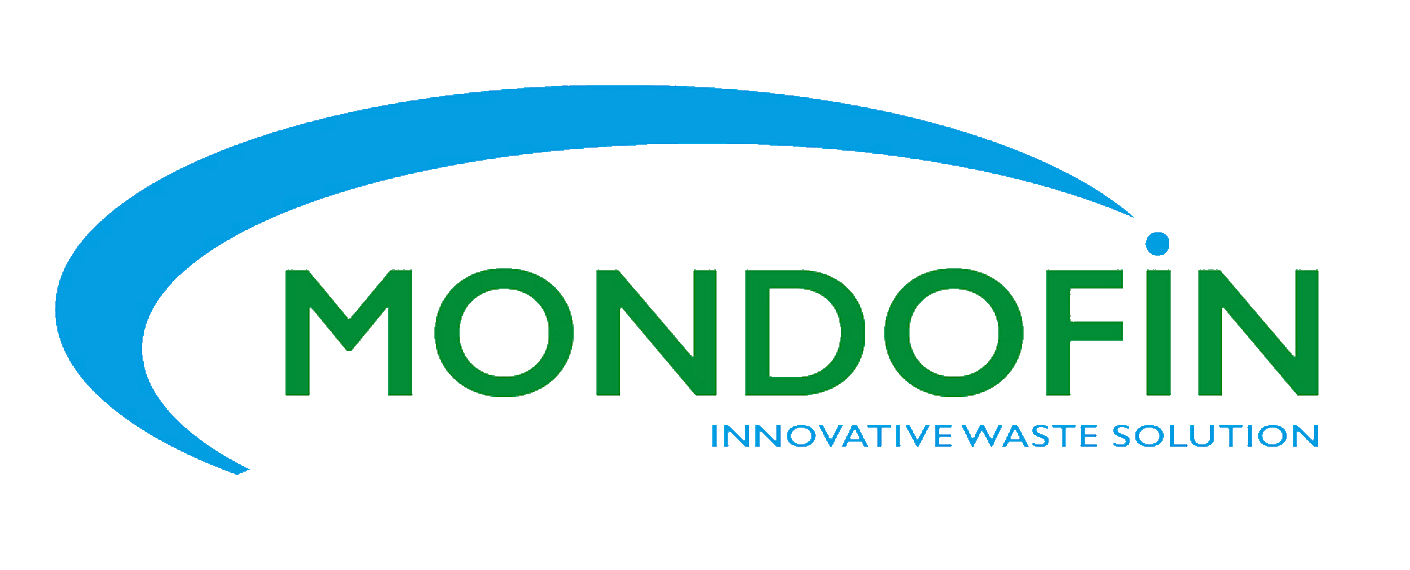
Waste-to-Energy in Africa !
🌍 Powering Progress: Waste-to-Energy in Africa’s Sustainable Future
As Africa faces the twin challenges of energy insecurity and mounting waste, a transformative solution is gaining momentum: Waste-to-Energy (WTE). By converting organic and municipal waste into clean, reliable power, WTE is helping African nations move toward a circular economy, climate resilience, and energy independence.
⚡ A New Energy Frontier
In Zambia, the Luapula Water Supply and Sanitation Company (LpWSC) is leading the way. With support from German utilities and the EU’s Water Operators’ Partnerships programme, LpWSC has built a biogas facility that captures methane from sewage and transforms it into electricity. This powers the city’s wastewater treatment plant, reduces emissions, and produces organic fertilizer for local farmers.
“This project isn’t just about energy—it’s about leadership in the face of crisis,” says Golden Manyanga, Senior Manager of Engineering at LpWSC. “By turning waste into power, we’re showing that a Zambian utility can lead the transition to clean, reliable, and homegrown energy solutions.”
🌱 Scaling Solutions Across the Continent
Zambia’s success is part of a broader movement. From Kenya to Nigeria, WTE projects are gaining traction as governments seek to diversify their energy mix and reduce dependence on fossil fuels. These initiatives are not only addressing chronic power shortages but also creating jobs, improving sanitation, and mitigating climate change.
International organizations are stepping in to accelerate this momentum. A recent partnership between the UNFCCC and the Global Energy Interconnection Development and Cooperation Organization (GEIDCO) launched the Energy Cluster, a platform aimed at strengthening clean energy capacity in developing countries. The initiative emphasizes South-South cooperation, technical training, and strategic engagement to help countries scale up WTE and other renewable energy solutions.
Despite this new frontier, there is still a very limited number of WTE facility in Africa.
Existing Projects from 2025:
Reppie Plant (Ethiopia): Africa’s first major WTE facility.
Gorge Farm (Kenya): 2.4 MW anaerobic digestion plant using vegetable and flower waste.
Bronkhorstspruit (South Africa): Industrial-scale biogas plant processing 240,000 tons of organic waste.
Ghana Hybrid Plant: 400 kW facility combining solar, biogas, and pyrolysis.
Bulawayo (Zimbabwe): Planned thermal WTE plant converting solid waste into biodiesel and electricity.
🚧 Barriers to Waste-to-Energy in Africa
Despite its promise, WTE implementation in Africa faces several challenges:
1. 🏗️ Inadequate Waste Management Infrastructure
Most cities lack efficient systems for waste collection and segregation. With over 90% of waste openly dumped or burned, reliable waste streams for WTE are hard to secure.
2. 💰 High Capital Costs and Limited Financing
WTE technologies require significant upfront investment. Limited access to financing and uncertain returns deter private investors and municipalities.
3. 📜 Policy and Regulatory Gaps
Many countries lack clear policies or incentives for WTE. The absence of feed-in tariffs and renewable energy frameworks creates uncertainty for developers.
4. 🔧 Technical and Operational Challenges
Local waste compositions often require customized technology. Additionally, there’s a shortage of skilled personnel to operate and maintain WTE facilities.
5. 🧠 Public Perception and Community Resistance
Concerns about pollution and health risks can lead to community opposition. Public awareness and engagement are crucial for project success.
6. 🚚 Logistics and Supply Chain Complexity
Fragmented waste collection systems and transportation challenges make it difficult to ensure a steady supply of waste to centralized WTE plants.
🌟 The Road Ahead
To unlock the full potential of WTE in Africa, several enablers are essential:
- Supportive policies and regulatory frameworks
- Investment in infrastructure and technology
- Public-private partnerships
- Community engagement and education
Mondofin can play a pivotal role by developing a turnkey project, facilitating financing, sharing technical expertise, EPC, and advocating for sustainable energy policies.
Africa’s waste is no longer just a problem—it’s a powerful resource. With the right vision and collaboration, WTE can light up communities, clean up cities, and power a greener, more resilient future.
